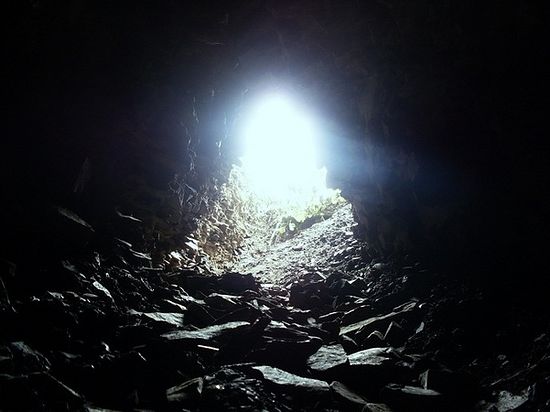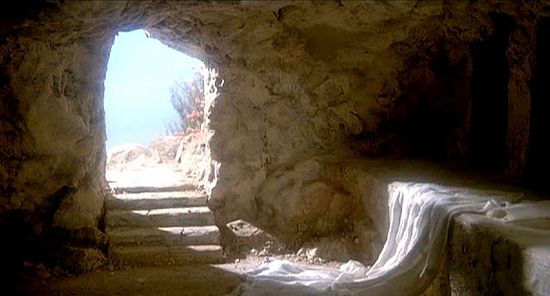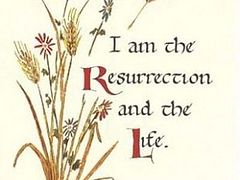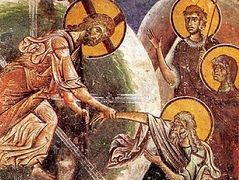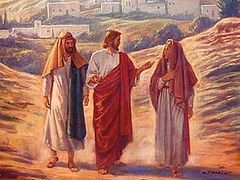The Lenten Sunday Gospel lessons from St. Mark (Mark 2:1-12, 8:34-9:1, 9:17-31, 10:32-45) help shape our understanding of what it is to be a disciple of Christ. But also experience them as moving through an ever narrowing tunnel.
Each week of Great Lent, our way of life, our beliefs and perspectives are challenged by our Lord Jesus Christ, so that we can properly understand how to follow Him. Discipleship and discipline are completely interrelated. Asceticism (i.e., self-denial, self-renunciation, self-control, self-emptying) is the necessary activity of the disciple. If we are ever going to do the will of the Master, we have to know how to say no to our self, no to our self will. Each week of Great Lent we are drawn deeper into that ever narrowing tunnel of self-denial. And as Mark has it, that tunnel gets darker as we go deeper into it. It gets darker because “the world” as Mark portrays it increasingly rejects Christ and pushes Him toward the crucifixion. It gets darker because slowly even his family and followers and then even His disciples abandon Him, betray Him, deny Him and flee from Him.
But also and always, there is a speck of light at the end of the tunnel – and there is an end to the tunnel! We are drawn toward the Light, who is Christ. Throughout Lent, we like the catechumens of ancient times continue to move toward Christ. In fact this is our entire spiritual life even when not in Lent. But to get to the Light, as we realize liturgically in the Church, we must pass through this painful and most narrow passage – the Gospel. We end up on our hands and knees in the tomb of Christ.
There is no other way for us on this spiritual sojourn if we are to follow Christ because this is the way He walked, and then was carried. We all must pass through that narrow and dark passage of the tomb of Christ. We liturgically and literally in our parish pass into the narrowness of the entrance into the Tomb of Christ. All of Great Lent and all of Holy Week lead to the darkness of the night – Christ asleep in the tomb, Christ in Hades. We hope that God will arise and judge the earth.
Then in the middle of the night, in the midst of the darkness, the Light appears, the unfading, everlasting and gladsome Light which overcomes the night. Christ the Light, risen from the Dead! We have passed through the cross, through the tomb, through death, through Hades, into the never ending light of God’s Kingdom. And the tombs which stink of death suddenly become the fount of life, the source of the resurrection, the font of baptism, the means of new birth, of regeneration, of access to God, to the Kingdom, to eternal life.
The tomb of Christ, his death and his burial, all become for every one of us passage into new life. We enter through this narrow passage way in our own baptism, where we die with Christ and are buried with Him, and then are raised with Him to a new and unending life. And each Pascha we are reminded of this journey, of our spiritual sojourn through the darkness of this world, through the cross and tomb into the joyful light of God’s Kingdom. Our walk into the darkness of midnight is a reminder that we are but sojourners on earth, passing through on our way to the Kingdom of God. And the night does pass away, and the darkness fades before the Light of Pascha and the New Day, the 8th Day, the Lord’s Day. So too this world and our life on this earth will also pass away, and only that which God establishes will continue on forever. So we live not for this world but in this world. We live for the Kingdom of God which stands forever and which is not overcome by the darkness.
We are not blind to the fact that the world in which we live has not changed. Life seems to go on as if there is no God and no resurrection. The world is still awash in violence, disease, warfare, sin, lust, greed, disbelief and death.
It is we who believe who have been changed – for we now have light and hope and joy, despite whatever darkness there is in the world. We by our faith are to be a light to the world. We don’t shrink before the darkness and its threats, but rather we shine with the Light of Christ rather than curse the darkness.
Let us arise at the rising of the sun and bring to the Master a hymn instead of myrrh, and we shall see Christ, the Sun of Righteousness, who causes life to dawn for all.

